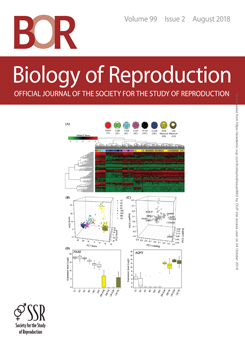Autophagy is an essential cellularmechanism that degrades cytoplasmic proteins and organelles to recycle their components. Here we showed that autophagy was essential for the glycolysis switch and energy homeostasis in mouse granulosa cells under hypoxic condition. Our data indicated that hypoxia inducible factor-1α (HIF-1α) could be largely increased in developing follicles and this remarkable upregulation of HIF-1α triggered cell autophagy and glucose uptake. We found that blocking autophagy by Atg7 knockdown and 3-methyladenine (3-MA) treatment affected the glucose metabolism, with increased glycolytic enzyme activity and decreased ATP production. We also found enhanced lactate level, which was harmful to granulosa cells and could induce cell apoptosis. Thus, our findings highlight a protective role of HIF-1α-dependent autophagy for the granulosa cell glycolysis switch in both energy supply and cell survival.
Summary Sentence
HIF-1α-induced autophagy is essential for glycolysis metabolism in mouse granulosa cells.





